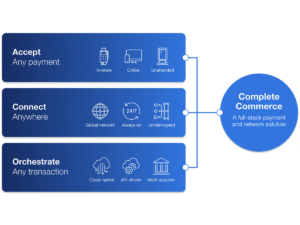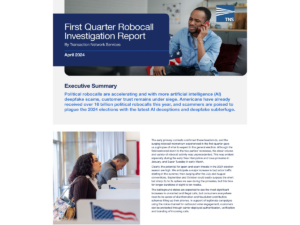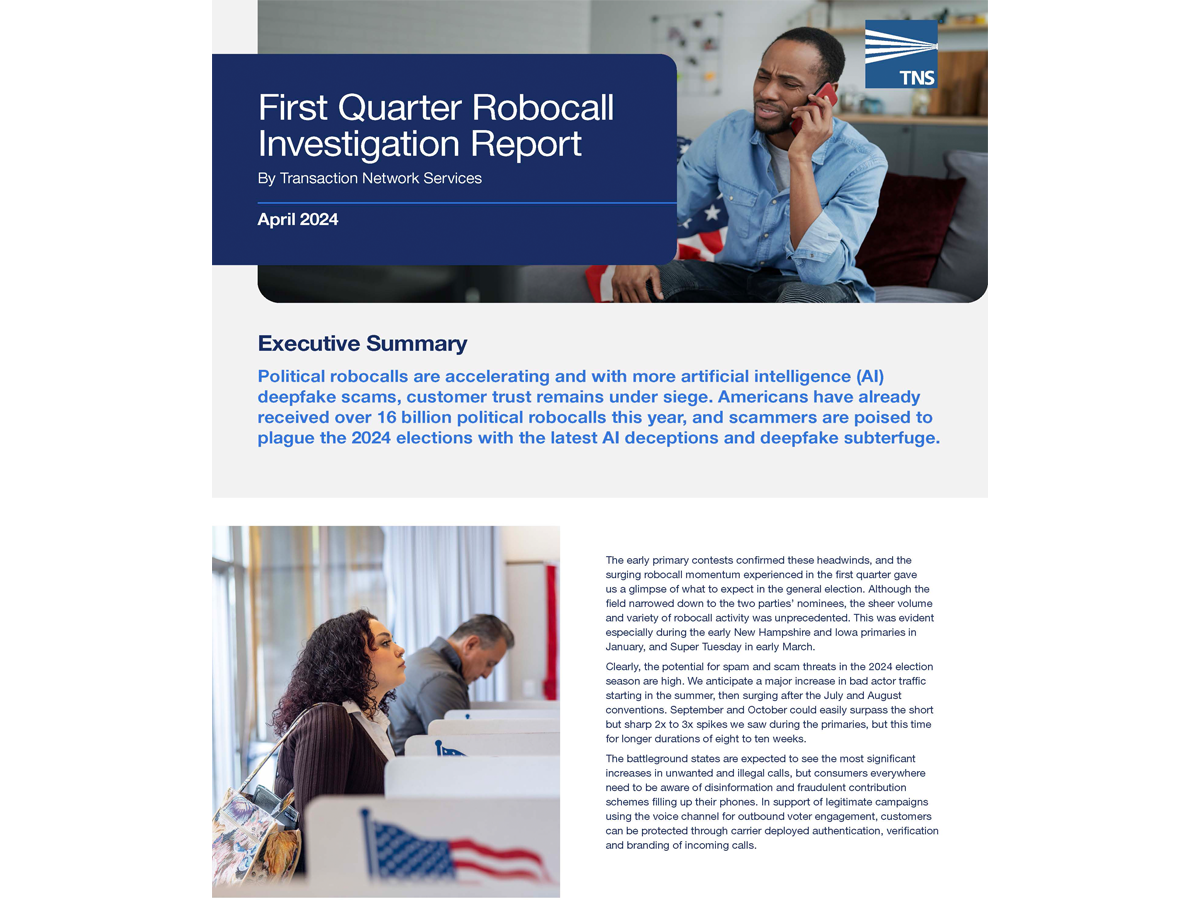Americans have received over 16 billion political robocalls since the start of the year, an ominous preview of potential disinformation and scam risks that voters face leading up to the 2024 US Presidential election in November. The new data was released today by Transaction Network Services (TNS) as part of its Q1 2024 Robocall Investigation Report.
Despite Democrat and Republican nominations being determined relatively early in the primary schedule, battleground states were inundated with political robocalls throughout the year’s first quarter. Iowa, New Hampshire, Vermont, Pennsylvania and Nebraska ranked in the top five for the most political robocalls received per capita year-to-date.
“Our latest Robocall Investigation Report focuses exclusively on political robocalls and shows a surge in volume in key swing states throughout the primary schedule,” said Denny Randolph, President of TNS’ Communications Market business. “The extent to which bad actors remain focused on impacting election outcomes and targeting voters with fundraising and donation robocall and robotext scams sets up an unprecedented risk climate. In addition, the emergence of generative AI – already used in voice cloning deepfake robocalls this primary season – places a heavy burden on policymakers, regulators and technology leaders to collectively act to protect voters.”
TNS analyzes more than 1.5 billion daily call events across hundreds of carrier networks to identify current robocall trends and scams, while supporting more than 125 service providers in North America (including four out of the top seven US carriers). With TNS’ reach extending to almost 250 million active subscribers and unparalleled insights into cross-carrier call events, TNS is uniquely positioned to help carriers differentiate between legitimate robocall activity and unwanted scam/nuisance calls.
The Q1 2024 TNS Robocall Investigation Report also includes several new insights:
Timing of political robocall volume spikes varied
In some cases, political volume spikes coincided with the state’s primary date:
- Iowa – up 9,163% during January 8-14 compared to the previous week (January 15 primary)
- New Hampshire – up 4,097% during Janurary15-21 compared to the previous week (January 23 primary)
- Arizona – up 4,450% during March 18-24 compared to the previous week (March 19 primary)
- Missouri – up 51,521% during March 18-24 compared to the previous week (March 23 primary)
But in other cases, dramatic volume spikes occurred well before or after the state’s key primary date:
- Nebraska – up 13,959% during January 8-14 compared to the previous week (May 14 primary)
- Pennsylvania – up 43,917% during March 18-24 compared to the previous week (April 23 primary)
- Washington – up 12,234% during March 18-24 compared to the previous week (August 6 primary)
AI risks emerged with New Hampshire Primary Biden Deepfake
In the week before the New Hampshire primary in January, voters received nearly 900,000 robocalls, including an AI deepfake of President Biden’s voice telling them to stay home and not vote.
Voters should expect AI to factor prominently in November election disinformation attempts, though there are aggressive policy, regulatory, carrier and industry efforts underway to protect Americans. To curb AI-generated political misinformation robocalls, the FCC unanimously ruled that voice cloning technology used in robocall scams is illegal. Last year, TNS launched AI Labs, an initiative researching how AI can be leveraged for future use in the telecom industry, with an early-stage focus on voice biometrics, predictive AI-powered call analytics and AI SMS detection.
Top election scams include misinformation attempts and donation requests
Bad actors deploy various voice and text scams during election season, including fraudulent political campaign donation requests, misleading election surveys and false voter registration calls. These illegal actions also include impersonating official political entities, with the goal of sowing misinformation with voters.
To gain access to political robocalls data from Q1 2024, download the latest edition of TNS’ Robocall Investigation Report here.
Download TNS’ Q1 Robocall Investigation Report
Gain access to political robocalls data from Q1 2024, as well as information on the scam risks that voters face leading up to the general election.





